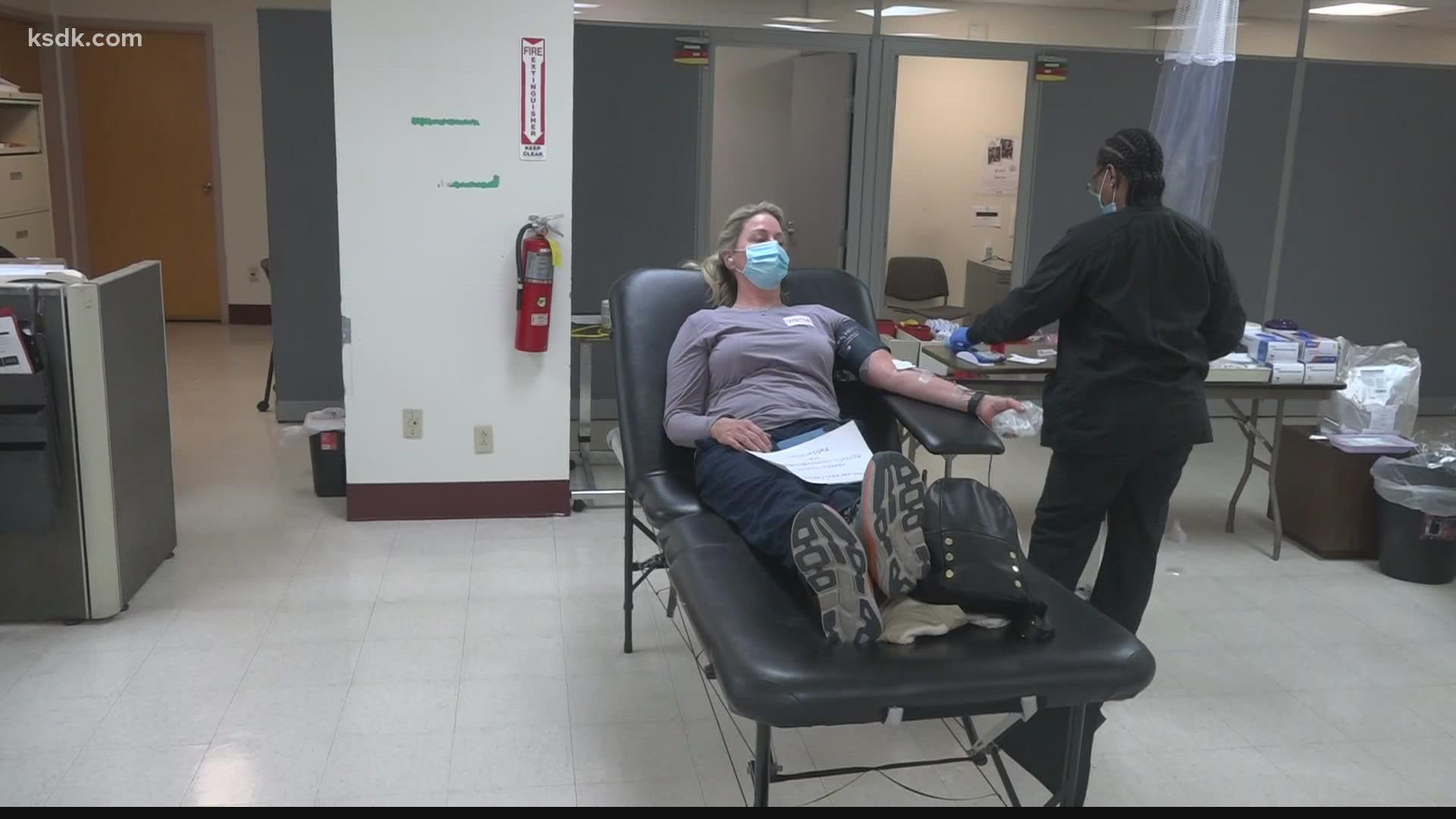ST. LOUIS — The Red Cross donation center in St. Louis's Central West End is quiet Monday afternoon with open beds despite the urgent need for donors. The organization issued its first-ever national blood shortage alert earlier this month.
But chimes go off when Julie DeFeo, a former nurse, rolls up her sleeve in service.
"In the past, it was accessible because I was always out and about, and I would see blood drives. But since I saw a story on the news, I thought maybe I should come to donate," DeFeo said.
DeFeo waited three weeks for this appointment. She says she knows some factors, like her coronavirus vaccine or a recent breakthrough case of COVID-19 could delay a donation.
But some potential donors have been banned for decades by rules regarding sexuality, and there are mounting calls in the medical community for change.
The president of the American Medical Association, Dr. Gerald E. Harmon, called the rules "discriminatory."
RELATED: Does the Red Cross allow gay and bisexual men to give blood amid the national blood shortage?
Blood banks and donor centers follow rules set by the FDA, which in 1985 -- during the HIV/AIDS crisis -- established a lifetime back on donations for men who have sex with men.
In 2015, rules were changed to allow appointments for gay and bisexual donors after a year of celibacy.
And in April 2020, the FDA changed guidelines again, dropping the required abstinence period to three months.
But Dr. Harmon argues the rules aren't rooted in science but stigma, adding "a man who has protected sex with another man in the three months prior to a blood donation cannot be a donor, but a man or woman who has unprotected sex with multiple partners of the opposite sex over the same time period remains eligible."
"It is unfortunate that it's a blanket statement, but it's really hard to make those changes. We've made inroads in it, but it hasn't been enough," ImpactLife's Pete Lux said.
Lux oversees Donor & Patient Services for ImpactLife, which recently opened a donor center in Fairview Heights, Illinois. But he also sits on an advisory committee with the Association for the Advancement of Blood & Biotherapies, or AABB, that helps the FDA shape its guidelines.
"They are kind of written in stone," Lux said of the donor rules, "but fortunately, we do have a chisel to help change some of that."
The Red Cross is also working to gather data for the FDA, conducting a pilot study that could help modify the donor history questionnaire.
The Red Cross and other organizations are partnering with LGBTQ+ Centers in Washington D.C., San Francisco, Orlando, New Orleans/Baton Rouge, Miami, Memphis, Los Angeles, and Atlanta to collect data from 2,000 people to determine if a system that prioritizes assessing everyone on an individual basis, instead of time-based deferral, would reduce the chance of adding HIV in the blood supply.
A recent Gallup poll found about 5% of US men identify as LGBT.
One study estimates lifting the bans could increase the total annual blood supply by 2-4%.
If FDA guidelines do change, Lux estimates it would take six to eight weeks to make the changes in their computer system and training, but he also realizes that it may take time to gain the full support of a community that was prohibited from donating for decades.

